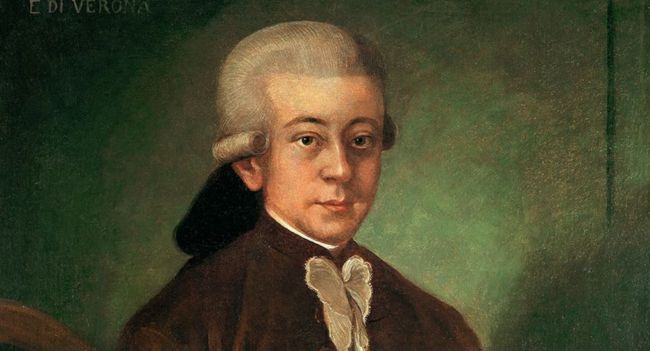
It all began the previous December, when the young Mozart, just weeks short of his 14th birthday, set off on an extended trip to Italy with his father Leopold. This was by no means his first ‘promotional’ tour: starting at age six, Leopold had already taken his son on visits to Vienna, Munich, London, Paris and Zurich, where audiences hailed Mozart Jnr as an infant prodigy.
Italy was next on the list of places where Leopold could tout his teenage boy’s talent. The couple’s first Italian journey lasted an extraordinary 15 months, visiting 40 towns and cities and performing in over half of them. No wonder the young Mozart was, according to Leopold, falling asleep at the dinner table by the end of it.
What song did Mozart steal from the Vatican?
Four months into the journey, on Wednesday 11 April, the pair reached Rome. As Roman Catholics, they made a beeline for St Peter’s Basilica where Pope Clement XIV was presiding over the events of Holy Week. That afternoon they attended a service in the Sistine Chapel and heard Gregorio Allegri’s setting of the Miserere, a beautiful choral piece composed over
a century earlier.
What happened next is the stuff of legend. According to Leopold, Mozart returned to the lodgings where he wrote down the entire 12-minute Miserere from memory. This was a potentially perilous thing to do. In the decades since the work had been written, it had been jealously guarded by the Vatican authorities. Performances were limited to the Sistine Chapel, and making copies of Allegri’s music was a transgression theoretically punishable by excommunication.
If Mozart knew all this, it didn’t seem to bother him. He returned to hear the Miserere again on Good Friday, possibly to check if his memory had served him well on the Wednesday, and to make some final adjustments to his transcription. Less than a month later, the Mozarts left Rome to continue with their travels, taking Mozart’s Miserere manuscript with them.
At this point, the narrative becomes murky. What we do know is that Pope Clement soon became aware of Wolfgang’s daring act of musical piracy. Somebody, it seems, had written to him anonymously praising the feat – a ‘petition’ that some have speculated may actually have been penned by the ambitious Leopold. Pope Clement could easily have reacted badly to the news of Mozart’s ‘stealing’ Allegri’s masterpiece from the Vatican precincts. Instead he seems to have been delighted, and was determined to reward the young composer’s initiative and talent.
When was Mozart awarded the Papal knighthood and the Order of the Golden Spur?
By 26 June the Mozarts were back in Rome, summoned by letter to a papal audience. On 4 July 1770 Wolfgang was officially presented with a lambskin parchment conveying the Order of the Golden Spur, an honorary papal knighthood reserved for ‘those who have shown no small signs of faith and devotion and are graced with the merits of probity and virtue’.
As part of the presentation, Mozart also received a Golden Spur medallion hung on a red ribbon. He was proud of the cross, and enjoyed wearing it. Seven years later, however, it prompted an unsavoury incident. At a dinner in Augsburg, two local dignitaries mocked him for wearing it, making the composer ‘hot under the collar with rage and anger’. Grabbing his hat and sword – carrying one was another privilege accorded to Golden Spur recipients – he stormed furiously out of the dinner, taking a very dim opinion of the Augsburg upper classes with him.
